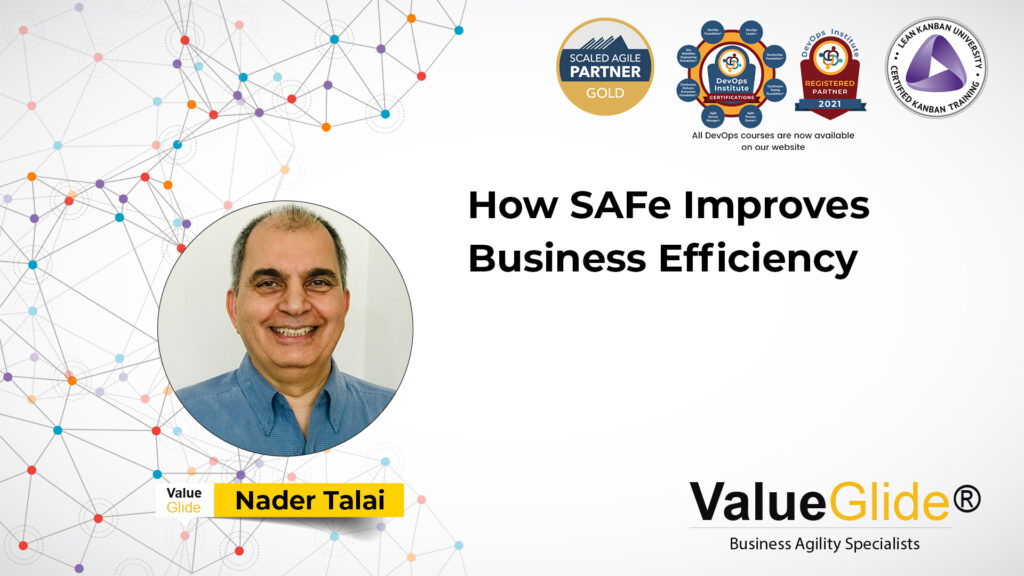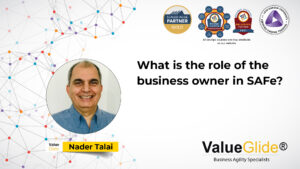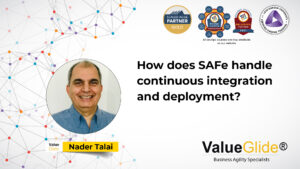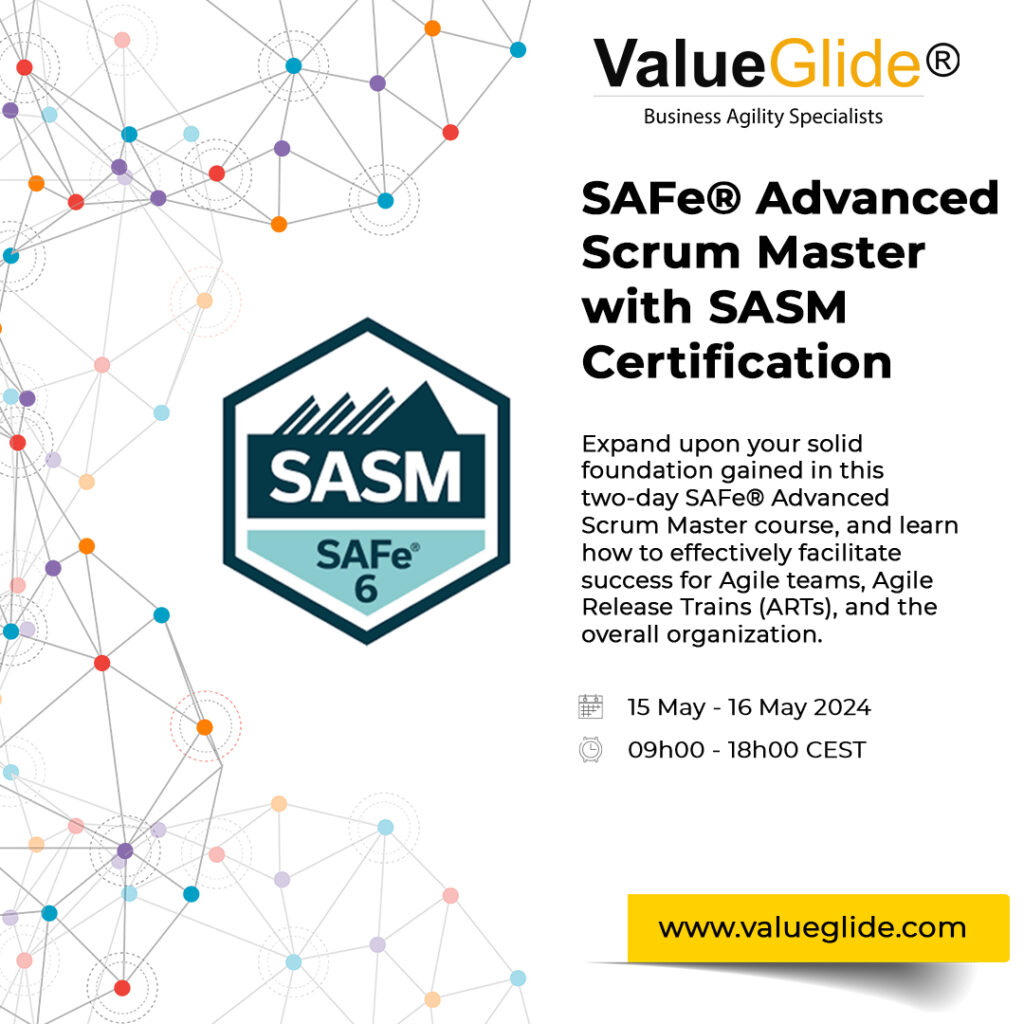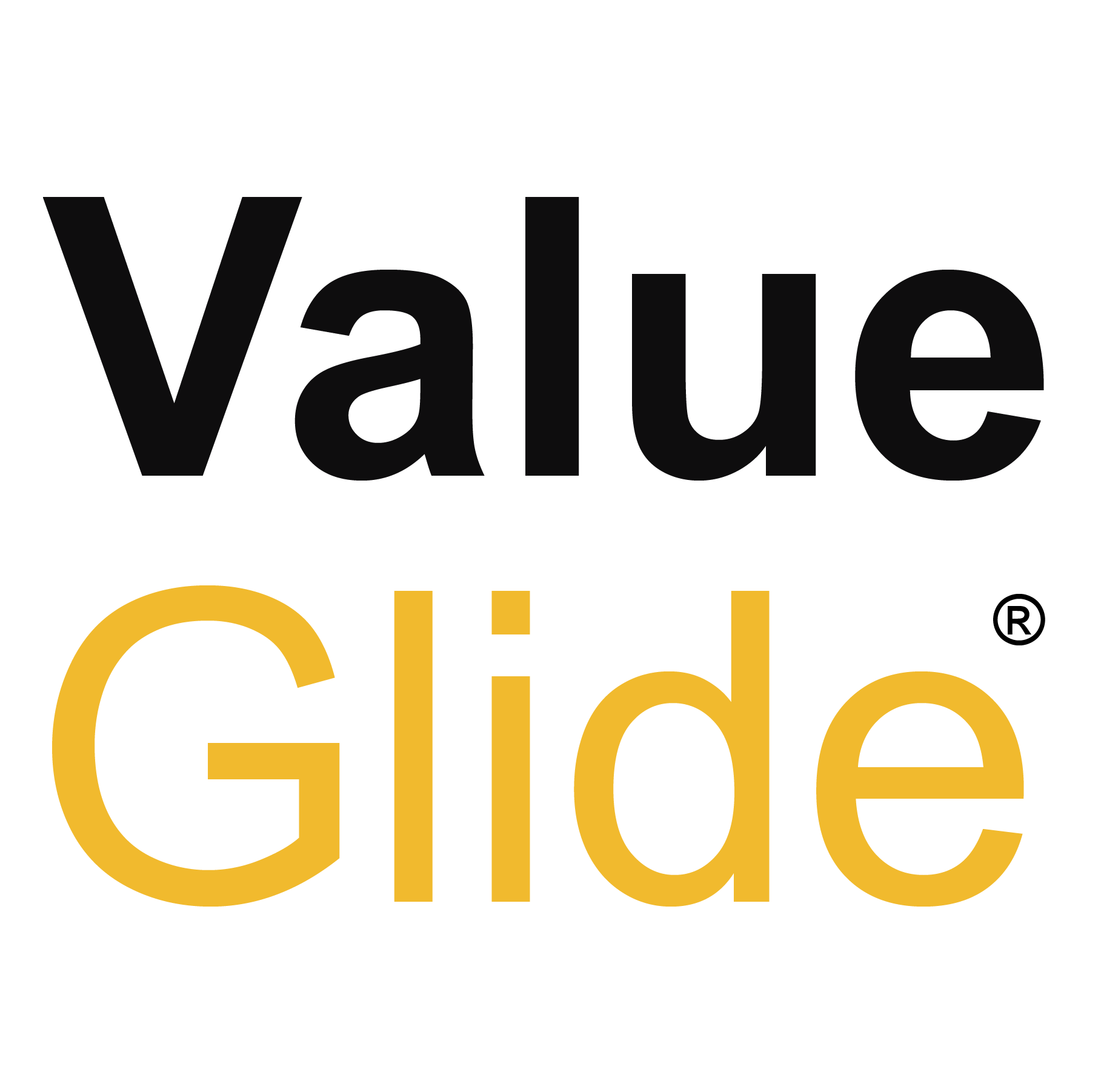One of the most important pillars of SAFe is the ‘flow.’ Flow is built within SAFe, at the Team Level and at the Portfolio Level. By focusing on flow and making sure that we have uninterrupted flow of value to our customers, that is how we improve the efficiency of the organisation and increase productivity.
The Scaled Agile Framework (SAFe) is designed to improve business efficiency by providing a structured approach to scaling Agile practices across large organisations.
SAfe improves efficiency through:
🚀Alignment with Business Goals. SAFe helps align Agile teams and activities with the strategic goals of the organisation. By setting clear objectives and prioritising work based on the organisation’s business priorities, SAFe ensures that efforts are focused on delivering value that directly supports business objectives. This alignment minimises wasteful activities and maximises the impact of Agile teams on business outcomes.
🚀Value Stream Optimization. SAFe emphasises the optimization of value streams, which are the end-to-end processes that deliver value to customers. By identifying and eliminating bottlenecks, redundancies, and inefficiencies in the value stream, SAFe helps organisations streamline their processes and maximise the flow of value.
🚀Cross-Functional Collaboration. SAFe promotes cross-functional collaboration and teamwork across different departments and teams within an organisation. By breaking down silos and fostering collaboration and shared accountability, SAFe enables organisations to leverage the collective knowledge and expertise of their teams. This collaboration reduces duplication of effort, facilitates faster decision-making, and improves the efficiency of work across the organisation.
🚀Effective Agile Scaling. By establishing clear roles, responsibilities, and processes for scaling, SAFe enables organisations to scale Agile in a consistent and structured manner. This scaling avoids fragmentation, improves coordination, and ensures that Agile practices are applied consistently across multiple teams and initiatives, leading to improved business efficiency.
🚀Continuous Improvement. Through regular Inspect and Adapt (I&A) events and retrospectives, organisations using SAFe can identify areas for improvement, experiment with new practices, and implement changes to drive efficiency and effectiveness. This culture of continuous improvement helps organisations stay adaptable, learn from their experiences, and continuously refine their processes to achieve better business outcomes.
🚀Scalability and Flexibility. SAFe is designed to be scalable and flexible, allowing organisations to adapt to changing market conditions and business needs. SAFe provides guidance on how to scale Agile practices while preserving flexibility, enabling organisations to respond quickly to market demands, seize new opportunities, and allocate resources efficiently. This scalability and flexibility improves business efficiency by enabling organisations to make timely and informed decisions based on market dynamics.
In summary, SAFe improves business efficiency by aligning with business goals, optimising value streams, promoting cross-functional collaboration, facilitating effective scaling, fostering continuous improvement, and supporting scalability and flexibility. By adopting SAFe, organisations can streamline their processes, improve collaboration, and achieve better outcomes with increased speed and efficiency.
Interested in learning more about the key roles of a Scrum Master in SAFe?
At Value Glide, through the application of SAFe (Scaled Agile Framework), we are able to offer agile consulting, agile coaching, and agile training specialists who work with organisations to align business objectives with customer needs and wants.
As deeply experienced agile coaches and practitioners, our team is invested in continuous learning through our training, coaching, and consulting services.
In a nutshell, empirical process control or empiricism.
If you are thinking of adopting agile within your organisation and have identified SAFe as a great agile framework to adopt, implement and improve your business agility, visit our SAFe Quickstart ART Launch program page or view our SAFe Consulting Services page.
If you have identified a need for an agile coach and SAFe coach to help your organisation adopt and implement SAFe, visit our SAFe Coaching Services page. We are committed to equipping organisations with the tools and knowledge to thrive in this ever-changing digital age, and achieve business agility through the Scaled Agile Framework.
Sounds good to you? Then sign-up today, and learn more about this transformation and revolutionary framework that is changing the game in the world of Agile. It is truly remarkable what can be done when we put our heads together and decide to work as one.
If you want to know more about SAFe and how to lead SAFe, visit our SAFE Training page for a host of options, from Leading SAFe to a SAFe Release Train Engineer course.
#SAFe #scaledagileframework #scalingagile #agile #agileframework #agilecoach

